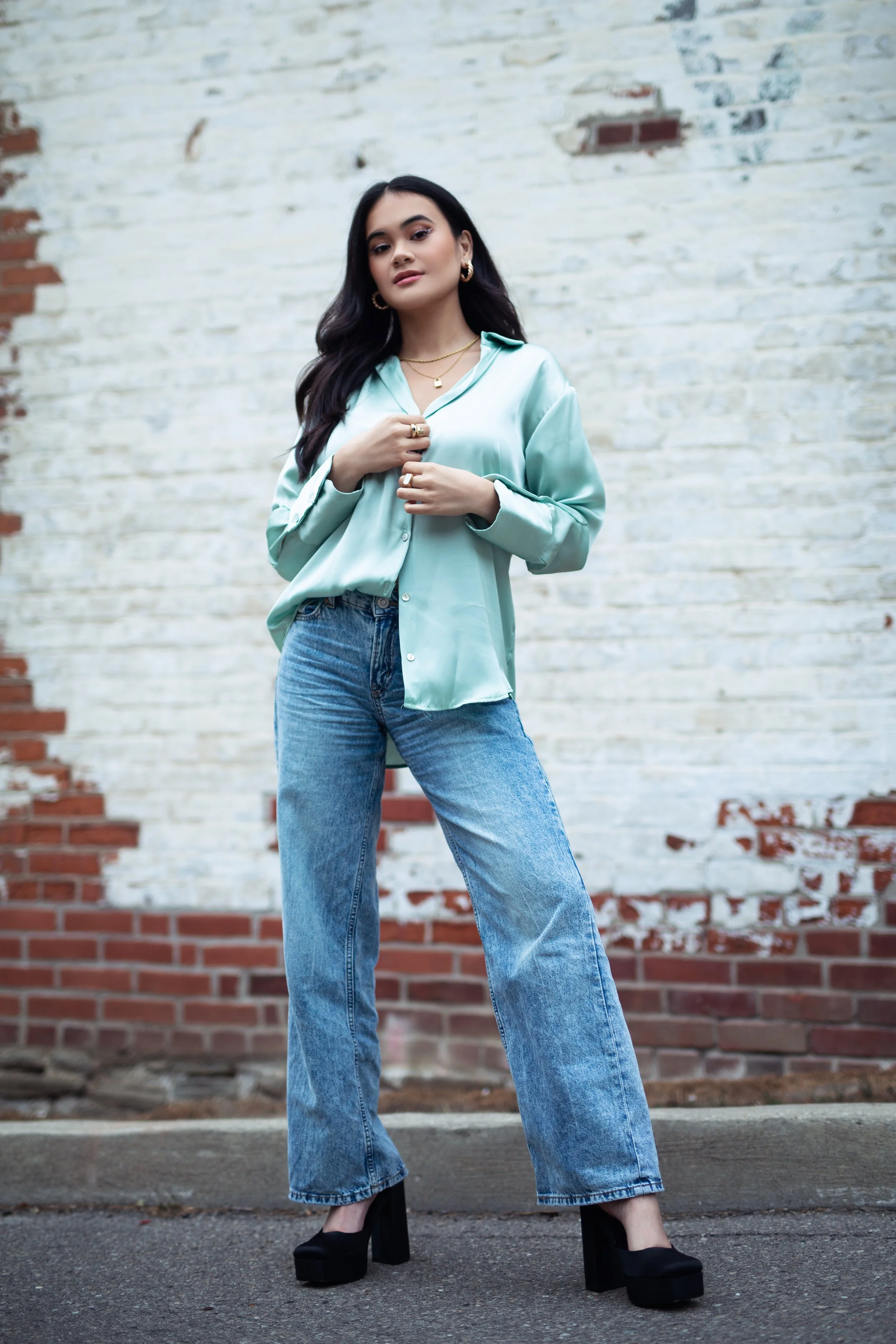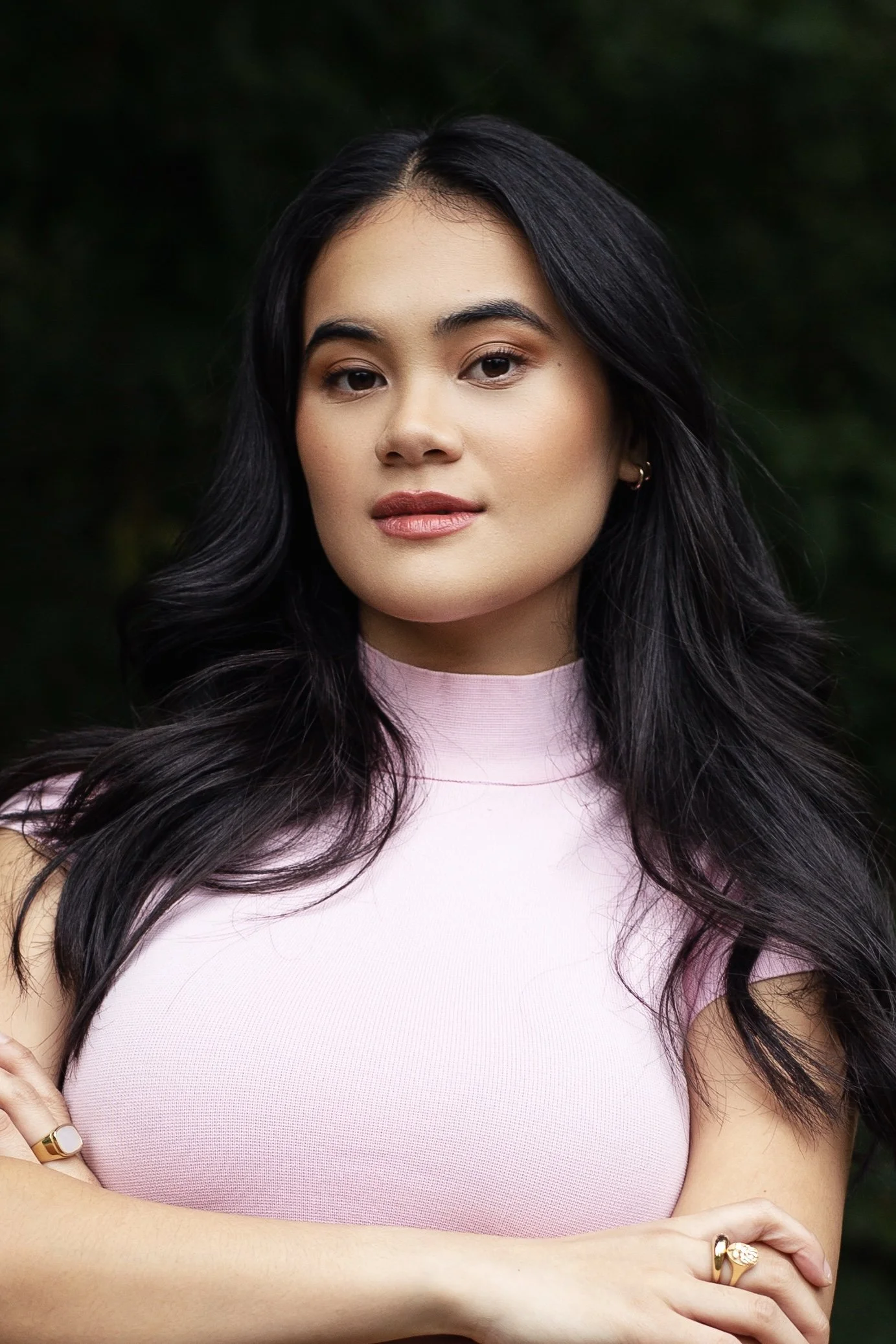IN CONVERSATION WITH MARTINA ORTIZ LUIS
words JANA LETONJA
Canadian actress and singer Martina Ortiz Luis is starring in the independent movie musical ‘Juliet and Romeo’, a modern take on the Shakespearean drama, which released on 9th May. Currently, she is also starring in Disney’s ‘The Lion King’ at the historic Princess of Wales Theatre in Toronto.
‘Juliet and Romeo’ gives such a bold, fresh twist to a classic. What drew you to the role of Veronica, and what was your first reaction when you read the script?
The first time going through the script was a lot of fun. It had the nostalgia and the familiarity of the original story, but also the newness of the worldbuilding in what 14th century Italy might’ve looked like, while also delving into characters that are not mentioned as much or at all in Shakespeare’s original text. Veronica, who doesn’t exist in Shakespeare’s text, immediately stood out to me. Especially when I heard the songs that she would get to perform. I was hooked and couldn’t wait to dive in.
You have a powerful musical moment in the film, an original number written specifically for your character. What was that creative process like for you, both vocally and emotionally?
I absolutely love the musical moments in this film and they were so much fun to shoot. I think Veronica is someone who comes off as very bold, strong, and playful, but with Mercutio, she can be a bit softer and sweeter. I tried to play with that in how I delivered my vocal performance in the songs. For example, in the first verse of ‘Better Than This’, I tried to play it vocally as a bit of a whisper, getting the town’s people to lean into her, almost like seducing them into gathering around. And as the song progresses, her voice gets fuller and fuller. It’s a celebration. Whereas in ‘What If I Loved You’, when she’s singing to Mercutio, it’s a little more playful and sweet since in that moment she’s flirting with him, teasing him, so there are less moments with a full belt.
What do you hope audiences take away from ‘Juliet and Romeo’, and especially your character’s arc and musical moment?
To start, I really hope audiences come into it open-minded because this isn’t an adaptation of Shakespeare’s ‘Romeo and Juliet’ per se, this is kind of a different world. It’s a fun, campy, energetic, pop musical with catchy songs, exciting sequences, handsome young dudes on horseback, and a little twist on the Bard’s story. It’s just a fun time. And I hope people leave this film with warm hearts and maybe find themselves singing some of the songs in the shower for the next week. And maybe a takeaway from Veronica. The overall story in itself is that letting love lead, even when it’s scary and incredibly daunting, is usually the beginning of a great adventure. I think a lot of the young characters in our film are torn between doing what they think they should do and following their hearts or doing what’s right, despite how messy that might get. I think that tension is very relatable.
From ‘The Lion King’ on stage to Wynonna Earp and now a major film musical, you’ve navigated so many performance spaces. How does your approach shift between live theatre, television, and film?
I can’t say my overall approach changes too drastically between the three in that there’s always a foundation of preparation, rehearsal, and care no matter the medium. That said, you do have to consider which choices might be more effective in the storytelling. For example, in film or TV, a subtle eye shift can carry the entire weight of a moment, whereas in theatre, that choice may not be as effective. So while the heart of the work remains the same, I’m always considering how best to adapt my performance to make the storytelling as effective as possible.
Music seems to be at the heart of everything you do. How do you feel your vocal training and background in classical performance inform your acting choices, or vice versa?
It definitely plays a big part in my process. I think especially coming from a classical voice performance background where most of the songs you have to learn are almost always in a different language, you have to really learn what the text is trying to say and invoke a performance that rings true for you. Having that practice has definitely informed how I prep for acting roles. It also informs choices I make when trying to deliver something as raw and real as possible that might be more vocally demanding without straining or hurting myself, especially if I need to be working 12 to 14-hour days on set or doing 8 shows a week. Music can also inform my mood or mindset. If I’m headed into work that day and I need something to get me feeling sexy, focused, pumped up, anxious, etc., I’ll try to find stuff that helps me get there.
Your latest single ‘Mad At Myself’ is out now. What inspired that song, and how does it reflect where you are right now as a musician?
‘Mad At Myself’ is such a fun, silly song, and probably one of my favourites I’ve ever released. It’s essentially about when you catch yourself falling for someone who’s really not meant to be yours and how you can go crazy over thinking how you could have even let yourself get into that situation. As an artist, musician, and actor, I think what it says about me right now is that I’m experimenting, finding new ways to express who I am, and not taking myself too seriously.
You’ve been in the spotlight from a young age, from anthem singing at the Scotiabank Arena to starring on screen. How has your relationship to performance evolved since then?
Such a great question. It’s been quite the journey and especially in these last few years jumping between mediums - music, film, TV and theatre - they all have their own challenges. I love the challenge of still discovering the newness of it all, learning how to adapt and grow within each space, and what makes effective storytelling possible in each space. But ultimately, the goal stays the same - to be a good storyteller and to connect with audiences in a true and meaningful way.
What does storytelling mean to you—whether it’s through a character on screen or through lyrics in a song?
I truly believe storytelling is a tool for building empathy, creating and preserving culture, and connecting people. It helps audiences see a reflection of themselves in others, often in ways they hadn't considered. Sometimes through characters that live completely different lives, in situations they themselves could never be in, and confront perspectives they may not encounter in their daily lives. It gives people the opportunity to feel, think, and sometimes even grow. As artists, I feel we can be self-deprecating and sometimes diminish our roles in society, but what a beautiful responsibility that is to open the hearts and minds of others. That’s truly what art and storytelling does.
When you’re not performing or writing music, how do you recharge creatively?
By watching movies and reading a lot.
With ‘Juliet and Romeo’ just being released and your music career rising, what’s coming up next for you?
Nothing I’m really allowed to talk about right now, but you can always follow along on my socials to get updates on what’s next. For now, you can catch ‘Juliet and Romeo’ in US theatres now, UK theatres on 11th June, and more international dates to be announced soon.
CREDITS:
photography JORDAN HARVEY





